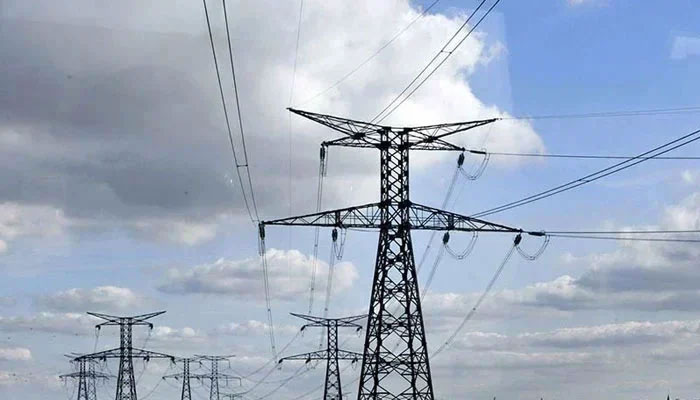Dreaming of uninterrupted electricity supply
We also need to improve the management and regulation of the electricity sector. Rampant inflation, a falling rupee, and severely low foreign exchange reserves already hobble the economy, with the power cut piling extra pressure on small businesses.
“Since the beginning of summer, our electricity is down many times a day.
Temperatures have begun to soar and unscheduled load shedding has increased, making our lives miserable,” says Tanweer Hussain.
“We have come a long way since the days of continuous load shedding. Now, with so many people working online, or remotely, and almost all corporate jobs and graduate-level education requiring the internet and electricity, we cannot settle for anything less than uninterrupted electricity,” says Mazhar Ali.
“The rise in global oil prices, devaluation of the Pakistani rupee, and the domestic political and economic crisis in Pakistan are propelling the state towards becoming energy insecure. Our dear homeland has god-gifted resources and is the seventh atomic power of the world but unfortunately, it has been suffering hugely with load shedding,” says Nusrat Hasan.
“Pakistan is an atomic power but still not producing atomic energy on a vast scale, also we have a land of rivers but not utilizing them to produce hydro energy. Even though we have big resources of coal and gas, but still not producing thermal energy,” adds Nusrat.
“The electricity problem is not new, but it has become more acute in recent years. The electricity demand has increased due to population growth and economic development, but the supply has not kept up. It seems the infrastructure for generating, transmitting, and distributing electricity is outdated and inadequate,” says Mujtaba Haider.
“Localized power cuts and load shedding are daily occurrences in Pakistan, and hospitals, factories, and government institutions are often kept running by private generators. However, the machines are beyond the means of most citizens and small businesses,” says Kaneez Fatima.
“Hundreds of water pumps go offline during the power cut, heaping more problems on the people of Pakistan. People still remember a massive power breakdown across Pakistan in January this year that left most of the country’s 220 million people without electricity and caused tens of millions of dollars in industry losses,” says Shehrbano.
“In Pakistan, the weather is mostly sunny throughout the year and from 365 days almost more than 250 days are sunny. It is a good move by the government to use of solar energy to produce electricity. In short, the government should take the right measures and reduce billing charges,” says Naseem-e-Zahra.
-
 Nancy Guthrie Abduction: Piers Morgan Reacts To 'massive Breakthrough' In Baffling Case
Nancy Guthrie Abduction: Piers Morgan Reacts To 'massive Breakthrough' In Baffling Case -
 Adam Mosseri Set To Testify In Court Over Social Media Addiction Claims
Adam Mosseri Set To Testify In Court Over Social Media Addiction Claims -
 Will Warner Bros Finalize Deal With Paramount Or Stays Loyal With Netflix's Offer?
Will Warner Bros Finalize Deal With Paramount Or Stays Loyal With Netflix's Offer? -
 Palace Spotlights Queen Camilla For Her Work With Vision-impaired Children A Day After Andrew Statement
Palace Spotlights Queen Camilla For Her Work With Vision-impaired Children A Day After Andrew Statement -
 Kim Kardashian Still 'very Angry' At Meghan Markle, Prince Harry
Kim Kardashian Still 'very Angry' At Meghan Markle, Prince Harry -
 Texas Father Guns Down Daughter After Heated Trump Argument
Texas Father Guns Down Daughter After Heated Trump Argument -
 Andrew, Sarah Ferguson Quietly Adopts New Strategy To Control Public Narrative
Andrew, Sarah Ferguson Quietly Adopts New Strategy To Control Public Narrative -
 Harry Styles Refuses To Apologise For High Tour Ticket Prices In Rude Response: Source
Harry Styles Refuses To Apologise For High Tour Ticket Prices In Rude Response: Source -
 Ariana Grande Opens Up About ‘dark’ PTSD Experience
Ariana Grande Opens Up About ‘dark’ PTSD Experience -
 Angelina Jolie Says It Loud: 'Scars Define My Life'
Angelina Jolie Says It Loud: 'Scars Define My Life' -
 Climate-driven Wildfires Scorch Some Of World’s Oldest Trees In Patagonia
Climate-driven Wildfires Scorch Some Of World’s Oldest Trees In Patagonia -
 King Charles’ Ignorance Over Andrew & Jeffrey Epstein Not True? Foreign Office, MI6’s Work Comes Out
King Charles’ Ignorance Over Andrew & Jeffrey Epstein Not True? Foreign Office, MI6’s Work Comes Out -
 Police Detained 'innocent' Man In Nancy Guthrie's Kidnapping
Police Detained 'innocent' Man In Nancy Guthrie's Kidnapping -
 Co-founders Of Elon Musk's XAI Resigned: Here's Why
Co-founders Of Elon Musk's XAI Resigned: Here's Why -
 Dakota Johnson Reveals Smoking Habits, The Leading Cause Of Lung Cancer
Dakota Johnson Reveals Smoking Habits, The Leading Cause Of Lung Cancer -
 FAA Shuts Down El Paso Airport, Flights Suspended For 10 Days: Here’s Why
FAA Shuts Down El Paso Airport, Flights Suspended For 10 Days: Here’s Why




